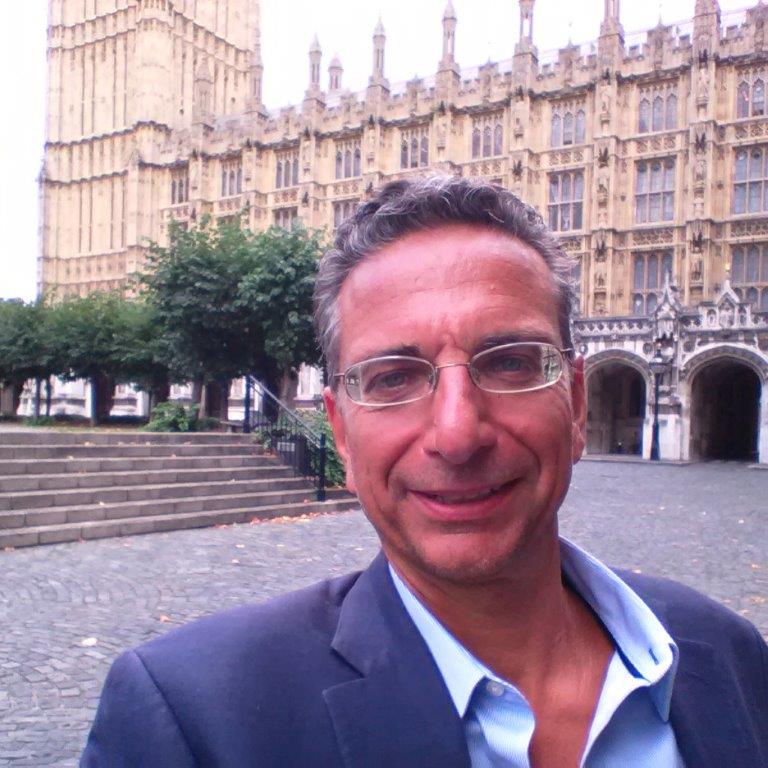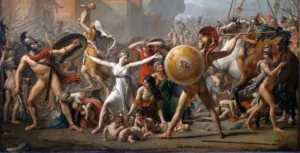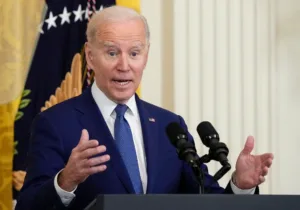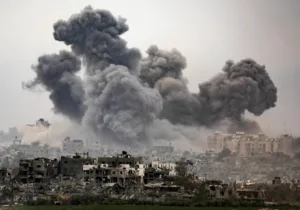“People are dying,” explains Mahmoud Fadlallah, “and we run toward death.”
This is the ethos of the 3,000-strong Syrian Civil Defense, which conducts search-and-rescue missions in war-torn Syria. Known as “the White Helmets” for their signature headgear, they have saved thousands of Syrians, mostly civilians, since the onset of the civil war. Last week their volunteers helped to rescue five-year-old Omran Daqneesh from the rubble of an apartment building in Aleppo: the image of a small boy, covered in dust and blood and sitting alone in an ambulance went viral, and has reignited debate over U.S. policy in Syria.
“Leadership is not only about deciding what is specifically best for you; it’s also about visualizing the result and using all the tools available to push in that direction with friends and opponents,” writes W. Robert Pearson, former U.S. Ambassador to Turkey. “Events over the last three years may offer us a cautionary tale on the consequences of what happens after nothing happens.”
What has happened in Syria is what usually happens when a violent and ruthless dictator commits war crimes against a civilian population with impunity: a cascade of human suffering, starvation, dislocation, and death.
On Aug. 21, 2013, the government of Bashar al-Assad murdered more than 1,400 Syrians—including several hundred children—in a nerve gas attack. It was a war crime, and more crimes like it would follow. President Obama promised a military strike against Assad if he used chemical weapons, but backed down after Assad pledged to give them up. The U.N. Security Council has passed several resolutions forbidding the use of barrel bombs and chemical weapons, but has failed to punish the regime for ignoring them. Earlier this month, a group of 29 physicians sent a letter to President Obama pleading for a no-fly zone in the rebel-held portion of Aleppo to protect roughly 250,000 civilians from airstrikes. Similar appeals have been made to the Security Council. All have been ignored.
The paralysis of the “international community” stands in stunning contrast to the activism of ordinary—though extraordinarily brave—Syrians under fire.
The White Helmets arose from a network of citizen volunteers—pharmacists, bakers, carpenters, engineers, students and others—who refused to flee or remain in hiding as their neighborhoods came under assault. Now operating in 119 centers across Syria, they have become the first responders in rebel-held areas bombarded by the regime. They dig people out of collapsed buildings, often with their bare hands, and provide medical assistance and emergency shelter in areas where public services no longer function. Although the number cannot be confirmed, group director Raed Al Saleh estimates that his volunteers have saved 60,000 lives. Earlier this month the organization was nominated for the Nobel Peace Prize.
Make no mistake: operating in areas decimated by government airstrikes, rebel resistance, and Islamic State forces, the White Helmets are engaged in what has been called “the most dangerous job in the world.” Many have paid the ultimate price: At least 130 have been killed while trying to rescue others. “When I want to save someone’s life,” says one volunteer, “I don’t care if he’s an enemy or a friend. What concerns me is the soul that might die.”
These facts—the moral seriousness and quiet valor of everyday Syrians—have been ignored during a presidential election year blackened by nativism and anti-Islamic tirades. In the morally debased culture of American politics, it is now necessary to point out that the vast majority of White Helmet volunteers are believing Muslims. They cite the Quran as inspiration for their work. As Fadlallah recently told the Associated Press: “God watches over us.”
Many no doubt find great comfort in that belief. Yet the suffering of the Syrian people continues, unabated, while others avert their eyes or grasp at a “diplomatic solution” that merely rewards the forces of barbarism. “Our unarmed and neutral rescue workers have saved more than 60,000 people from the attacks in Syria, but there are many we cannot reach,” White Helmet director Saleh explains. “There are children trapped in rubble we cannot hear.”
—
Joseph Loconte is an associate professor of history at The King’s College in New York City and a senior editor at Providence. His most recent book is A Hobbit, a Wardrobe, and a Great War: How J.R.R. Tolkien and C.S. Lewis Rediscovered Faith, Friendship, and Heroism in the Cataclysm of 1914-1918.
Photo Credit: White Helmet volunteer in Idlib, Syria. By @SyriaCivilDef, via Twitter. Posted June 2016.







 Live in the DC area? Sign-up for Providence's in-person events list!
Live in the DC area? Sign-up for Providence's in-person events list!